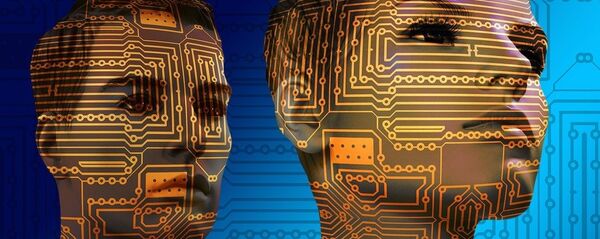The US Special Operations Command [USSOCOM] wants to push the limits of human performance in order to create super-soldiers, Defense News reported on Tuesday.
Ben Chitty, senior project manager in the Science and Technology office at USSOCOM, said that the armed forces are exploring nutritional supplements and even performance enhancing drugs as possible ways to increase pain tolerance, injury prevention and recovery.
USSOCOM is particularly focused on improving physical performance in tough environments such as high altitude or underwater for extended periods of time without access to food or water.
Dr. Michael Robillard, Postdoctoral Researcher on Collective Responsibility and Global Terrorism at Oxford University's Uehiro Centre for Practical Ethics, told Radio Sputnik that the proposition is a "nexus point of a variety of ethical concerns."
"I think it raises a series of ethical considerations, general apprehensions about the ethics of human enhancement and its overlap with this sphere of fighting ethical warfare and the treatment of soldiers."
"If we're taking soldiers and sculpting their identity in such a way towards these particular ends and then that's being enhanced toward being more effective soldiers, one might wonder [about] maybe some of the deleterious effects that might have on their autonomy, their sense of identity and particularly a post-enhancement, post-return from the soldier duty – how well they will be able to reintegrate with their families or back with civilian society."
Some observers have argued that physical enhancement is not a new concept, since armies have used amphetamines and other drugs to enhance their performance. However, current technology has the potential to enable a completely new kind of enhancement.
"One might argue that the notion of soldier enhancement is not a new problem, this is just a matter of degree, not a difference in kind. However, now it seems like with such things as neurochemical enhancements, integration with artificial intelligence, computational enhancement and robotics integration as well, one might argue that in fact this is not a distinction of degree any more, this is a significant jump in kind that may mangle or distort our normal sense of human identity."
"You see these types of concerns either with soldier enhancement or autonomous weapons. Usually, they split into camps of gloom and doom, the sky is falling, we are approaching inevitable existential risk, or the robots are going to save us and we're going to be downloaded into cyberspace or something like that."
"The truth of the matter, it's more nuanced and somewhere in between. But it least requires an active participation by politicians and by average citizens to educate themselves and be actively aware of the issues that are going on. It's not something that's just going to organically sort itself out, it's something that's going to be the effect and consequence of average people making average decisions," Robillard said.
Have you heard the news? Sign up to our Telegram channel and we'll keep you up to speed!



